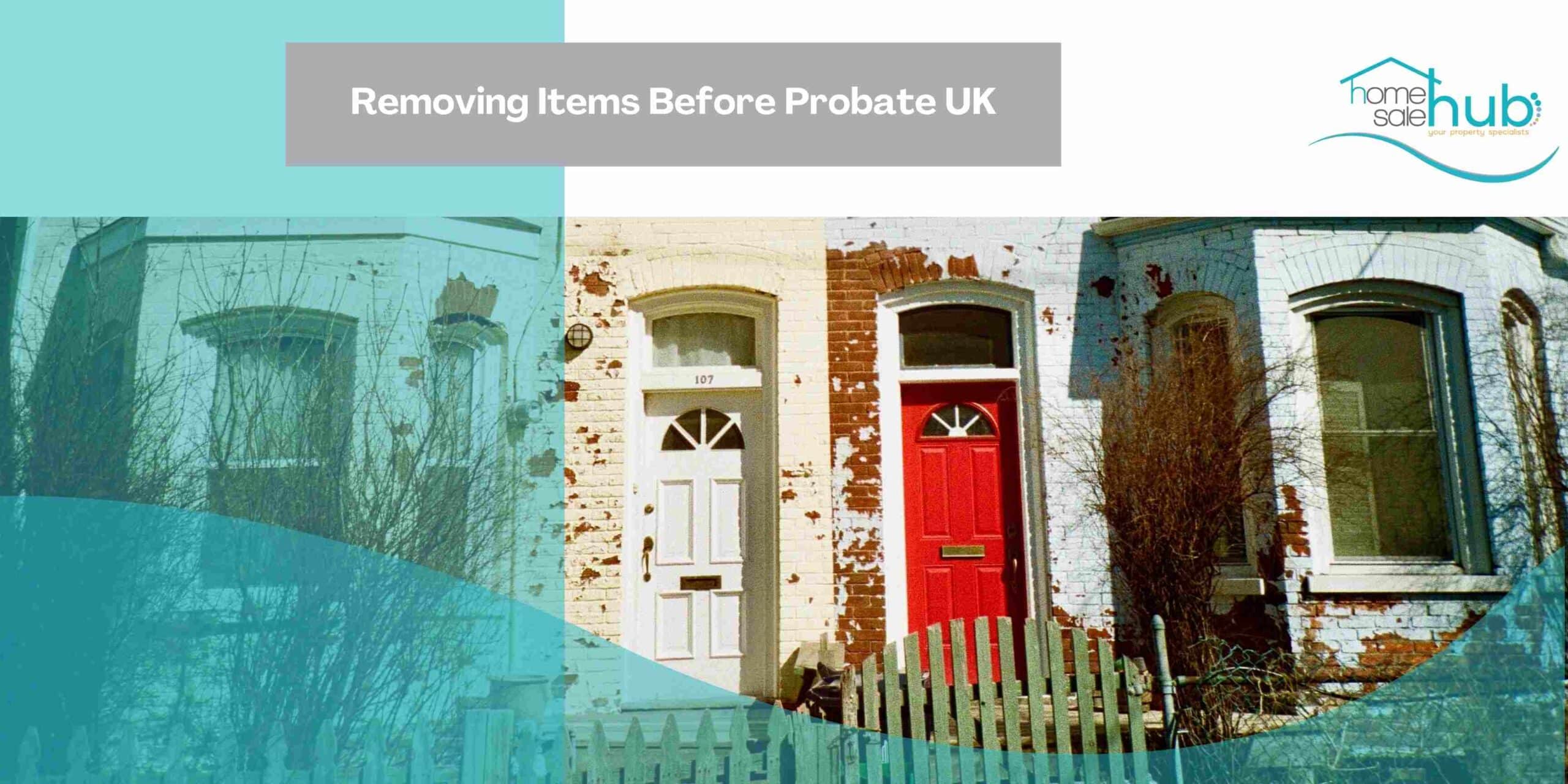Address
38f Goring Rd,
Worthing
BN12 4AD
Understanding Probate and Its Importance
When a loved one passes away, the process of handling their possessions can feel overwhelming, especially when legal obligations like probate come into play. Understanding how to navigate this process is essential to ensure that the estate is managed properly and that any legal or tax-related issues are avoided. This guide will explore the steps involved in removing items before probate in the UK and highlight important considerations to keep in mind.
What is Probate?
Probate is the legal process of administering a deceased person’s estate, which includes their possessions, money, and property. This procedure is required when the estate includes significant assets such as property, investments, or large sums of money. The goal of probate is to ensure that the deceased person’s debts are settled and their remaining assets are distributed according to their will or, if there is no will, the rules of intestacy.

In cases where an estate’s value is minimal and does not include substantial assets, probate may not be necessary. However, when significant assets are involved, probate becomes a key step in managing the estate.
The process typically takes between six months and a year to complete, depending on the complexity of the estate. Properties are often a focal point of probate due to their substantial value and the legal requirements for transferring ownership. Executors must follow the proper legal steps to avoid disputes or complications later on.
Pre-Probate Considerations
Securing the Property
Before beginning any tasks related to clearing or managing an estate, it is vital to ensure the deceased’s property is secure. The executor of the estate should confirm they can access the property, which may require locating all house keys and verifying that locks are functional. If keys are missing, or there is uncertainty about who might have access, it is often wise to change the locks. This simple step can help prevent unauthorized entry and protect the property.

Once access is secured, attention should turn to safeguarding the property from potential damage or theft. This could involve ensuring that windows and doors are intact, setting up a basic security system, or asking neighbors to keep an eye on the property if it is located in a quiet area.
For executors feeling overwhelmed by the task, a professional house clearance company can offer valuable assistance. These companies can help secure and clear the property efficiently while ensuring that items of value or importance are handled with care. This can also provide peace of mind, particularly for those who are managing an estate from a distance.
Valuing and Managing the Estate
Valuing the Possessions
Before probate is granted, it is often necessary to assess the value of the possessions within the estate. This step is crucial for determining the overall value of the estate and for calculating any potential Inheritance Tax liability. Chattels, which include personal possessions such as furniture, jewellery, and art, must be accurately valued, whether they are to be retained or sold.
In some cases, obtaining a Grant of Probate is required before any possessions can be sold. Professional assistance from a qualified valuer can simplify this process, ensuring that all items are correctly appraised. For executors unfamiliar with the process, this can help avoid underestimating or overvaluing items, which could lead to legal or tax-related complications.
To make the task more manageable, create a detailed inventory of the property’s contents. Highlight key items that may require special attention, such as antiques or items with significant monetary or sentimental value. A focused approach can streamline the valuation and house-clearing process.
Checking the Will
The deceased person’s will or letter of wishes often contains specific instructions about how their possessions should be distributed. Checking these documents early in the process can help clarify how certain items should be handled. For example, items with sentimental or personal significance may be allocated to specific family members or friends.

Following the instructions outlined in the will is not only respectful of the deceased person’s wishes but can also help avoid disagreements among family members. Clear communication and transparency during this stage are key to maintaining harmony and ensuring that everyone understands the decisions being made.
If there are no instructions in the will regarding specific possessions, the executor may need to make decisions about how to manage these items in consultation with the beneficiaries.
Clearing the House
Steps for Clearing a House After a Death
Clearing a house after the death of a loved one can be an emotionally challenging task. Breaking the process into manageable steps can make it less overwhelming while ensuring that important items are handled with care and that nothing is overlooked.
Start by creating a comprehensive inventory of everything in the house. This record will help ensure transparency, particularly if multiple family members or beneficiaries are involved. As part of this process, it can be helpful to take photographs of items that hold sentimental or monetary value. These images not only serve as a reference but can also prevent disputes by documenting the condition and presence of specific possessions.

Where possible, involve family members in the process. Collaboration allows everyone to express their preferences regarding sentimental items and ensures that all voices are heard. This can help reduce potential conflicts and provide a sense of closure for everyone involved.
For executors or family members who find the task too daunting, hiring a professional house clearance service may be an effective solution. These companies can handle the physical demands of sorting, packing, and disposing of items while respecting the emotional significance of the process.
As you work through the house, focus on clearing clutter and removing unnecessary items first. This will create space and make it easier to address larger, more complex areas like lofts, basements, or storage rooms. By staying organized and methodical, the house-clearing process can feel more manageable and less emotionally draining.
Hiring Professionals
Working with a Professional House Clearance Company
Clearing a house after a death can sometimes feel like an unmanageable task, particularly when faced with large volumes of items or emotionally significant belongings. In such cases, enlisting the help of a professional house clearance company can provide relief and efficiency.

Professional clearance services handle everything from sorting and packing to disposal or donation of unwanted items. Many companies also offer specialized services, such as biohazard cleaning, which may be necessary in certain situations. Their experience ensures that the process is carried out efficiently while respecting the sensitivities involved.
One of the main benefits of hiring professionals is the time and stress it saves. Executors or family members can focus on other important aspects of managing the estate, knowing that the physical and logistical challenges of house clearing are in capable hands.
Before hiring a company, take the time to research and compare services. Look for reviews, request quotes, and check for any additional offerings, such as recycling or charity donations. This will help you find a provider that aligns with both your needs and budget.
If you’re unsure where to start, consider asking for recommendations from solicitors, estate agents, or others who may have experience with trusted local services.
Distributing the Estate
Who is Responsible for Emptying the House?
The responsibility for emptying a property after a death typically falls to the executor of the will. As part of their role in administering the estate, the executor must ensure that the house is cleared and its contents distributed according to the deceased’s wishes or the rules of intestacy if no will exists.

Although the executor is responsible for overseeing this task, they are not required to handle the physical clearing of the house themselves. They can enlist the help of family members, friends, or professional house clearance services to carry out the work.
Emptying a house can also have practical advantages, such as making the property more appealing to potential buyers if it is to be sold. An empty house can often sell more quickly and with fewer complications, as prospective buyers are better able to envision how they might use the space.
Distributing Personal Possessions
Once probate has been granted, the executor can begin distributing the contents of the house to the beneficiaries. This process will follow the instructions set out in the will, or if no will exists, the rules of intestacy will determine how possessions are divided.
In many cases, personal possessions carry significant sentimental value, which can make distribution a delicate process. Open communication among family members is crucial to ensure that everyone feels their preferences and emotions are respected. Siblings, in particular, may need to navigate sensitive discussions about dividing possessions after the death of a parent.
For items that beneficiaries are unwilling or unable to take, selling these possessions through auction or private sale can be an effective solution. Proceeds from such sales are typically added to the estate and distributed accordingly. This approach can also simplify the process of managing large or difficult-to-store items.
Selling the House
Selling a House After Probate
Once probate has been granted, the executor may choose to sell the property as part of the estate settlement process. Selling a house after a loved one’s passing can be an emotional experience, but with the right approach, it can also provide a sense of resolution.

For executors seeking a quick and straightforward sale, working with companies that specialize in buying properties directly can be a practical solution. These companies often offer cash purchases with no hidden fees or lengthy processes, making it easier to finalize the sale without added stress. This can be particularly helpful if the property requires significant repairs or if family members wish to settle the estate quickly.
Before proceeding, it’s a good idea to consult an estate agent or property expert to understand the market value of the house and explore all available selling options. Whether selling through an estate agent, auction, or direct buyer, ensure that all decisions align with the best interests of the beneficiaries and the estate as a whole.
If you’re considering selling a property during probate or shortly after, it’s worth reaching out for a no-obligation cash offer to weigh your options and make an informed choice.
Additional Considerations
Properties Owned Jointly
When a property is jointly owned, the legal implications for probate can vary. In many cases, ownership of the property passes directly to the surviving owner under the principle of joint tenancy, meaning probate may not be required for the transfer of ownership.

However, if the ownership structure was different, such as tenants in common, the deceased’s share of the property may need to go through probate before being distributed according to the will or the rules of intestacy.
Even in cases where probate is not required, consulting a legal professional can help clarify any responsibilities or implications for the estate. For example, decisions about emptying the property or selling it should be approached with care to avoid misunderstandings or potential disputes later on.
Potential Consequences of Removing Items Before Probate
Removing items from a property before probate has been granted can lead to serious complications. Executors and family members should avoid taking or distributing possessions until they have the legal authority to do so.
Taking items prematurely may create issues such as:
- Disputes among beneficiaries: If an item is removed without agreement, it could cause conflict among those who are entitled to a share of the estate.
- Legal challenges: Unauthorized removal of possessions could be viewed as interfering with the estate, which could lead to legal consequences.
- Tax complications: Inheritance Tax calculations are based on the total value of the estate, including personal possessions. Removing items before they are valued can distort these calculations and create compliance issues.
It’s always safer to wait for the completion of probate before taking steps to empty or distribute the contents of a house. Acting with caution helps protect the interests of all beneficiaries and ensures that the estate is managed in accordance with the law.
Final Steps
Once the house has been cleared, the next stage involves preparing it for its intended purpose. Whether the property is to be sold, rented, or retained for family use, it’s important to ensure it meets any relevant legal and safety requirements. This might include arranging for electrical or gas safety inspections, addressing maintenance issues, or ensuring the property is clean and ready for its next occupants.
For those selling the property, consider whether minor improvements or staging might enhance its appeal to buyers. For rental purposes, you may need to comply with landlord regulations, such as installing smoke alarms or obtaining an Energy Performance Certificate (EPC).
Taking these steps can help ensure that the property is ready to move forward while also providing closure for those managing the estate.
Taking Care of Yourself
Clearing a house after the loss of a loved one is not just a logistical challenge but an emotional one. Sorting through personal belongings, whether they hold sentimental value or are simply part of daily life, can bring up a range of feelings. It’s important to approach this process at a pace that feels manageable and not rush through it due to external pressures.

Consider asking a friend or family member to join you for support. Having someone present can make the process feel less isolating and provide a practical second pair of hands.
For many, removing items from a loved one’s home becomes part of the grieving process. It can provide moments to reflect on memories, share stories, and find a way to honour their legacy. Treat yourself with kindness during this time, and if the emotional toll feels too great, seek help from professionals or trusted loved ones.


